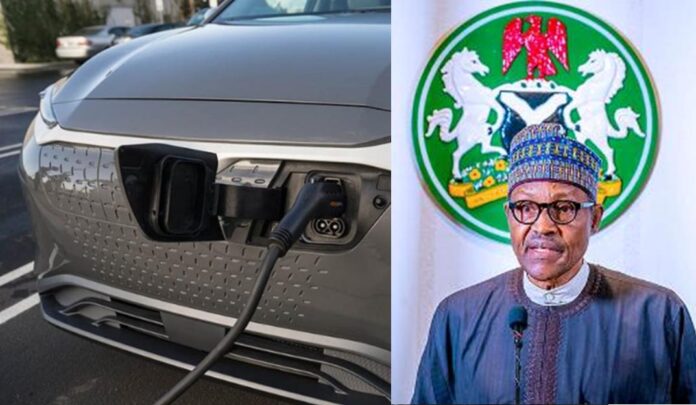ROTIMI ASHER
President Muhammadu Buhari’s administration has unraveled plans to set up Electric Vehicles’ Charging Stations at strategic locations across the country.
The Minister of Industry, Trade and Investment (FMITI), Otunba Adeniyi Adebayo, made the disclosure in Abuja recently during the unveil of Hyundai Kona, the nation’s first locally assembled electric car, courtesy Stallion Group.
According to him, the charging stations will be set up at such locations as shopping malls, event centers and other social/economic clusters in major cities and subsequently nationwide.
Adebayo commended Stallion Group for what he described as a bold step, considering the current global challenge caused by covid-19.
He encouraged the company to, in conjunction with NADDC, keep investing in the expansion of Electric Vehicles and human capacity development in the county.
He assured that Nigeria is actively joining the rest of the world in the battle against global warming and climate change.
“That is why, “he explained, “FMIT, in collaboration with National Automotive Design and Development Council (NADDC) is working towards migrating the nation’s automotive industry from production of vehicles powered by Fuel and Diesel to alternative energy-powered vehicles.
‘’The side attraction of EVs to automotive industry is that we will no longer have to queue up at filling stations, most especially during times of scarcity, which most Nigerians can relate to, as all that is required is setting up charging stations, which NADDC is working on.
The Industry Minister, who lauded NADDC for establishing the pioneer electric vehicle charging stations in University of Nigeria, Nssuka, University of Lagos and Usman Danfodio University, Sokoto, noted that his ministry is working closely with NADDC to review the auto policy, which, he believes, will create an enabling environment for all stakeholders in the Auto Industry.
‘’Electric cars, trucks and buses,’’ he explained, ‘’are now being built globally. Their advantages in terms of Zero emission of greenhouse gasses, less components to service and maintain, will make it suitable for a developing economy like Nigeria.’’
©Copyright MOTORING WORLD INTERNATIONAL.
All rights reserved. Materials, photographs, illustrations and other digital content on this website, may not be reproduced, published, broadcast, rewritten or redistributed in whole or in part without prior written permission from Motoring World International
Contact: [email protected]




